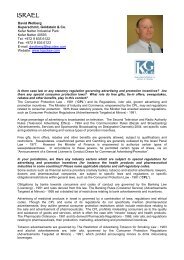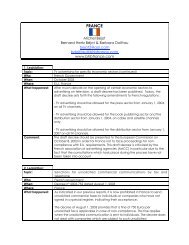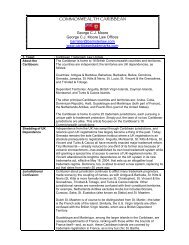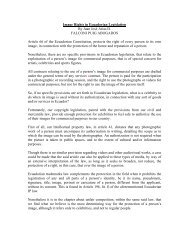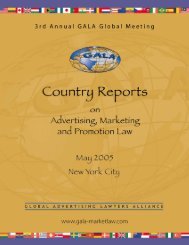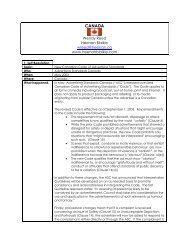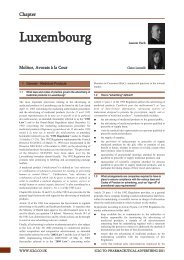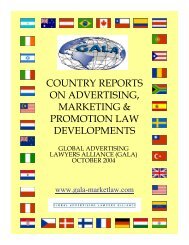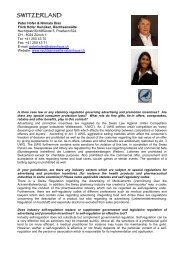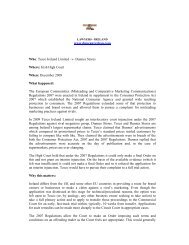International Advertising Clearance - May 2004 - GALA
International Advertising Clearance - May 2004 - GALA
International Advertising Clearance - May 2004 - GALA
You also want an ePaper? Increase the reach of your titles
YUMPU automatically turns print PDFs into web optimized ePapers that Google loves.
A: Tobacco, some medications, professional services.<br />
Q: What is your country’s law on privacy and/or rights of publicity regarding the use of famous<br />
people in advertising without their express permission?<br />
A: The image of any person at all cannot be used without their express permission,<br />
with the following exceptions: a. Public officers during relevant or public acts; b. Casual<br />
uses in which the person’s image is not relevant for the materials; c. Uses for strict<br />
educational, scientific or police purposes.<br />
Q: What is your country’s law on the use of other people’s products in advertising without the<br />
product owner’s permission? For instance, if a mustard company used a very recognizable<br />
automobile as part of its advertisement, would the automobile company have a right of action<br />
against the mustard company for false affiliation or false endorsement?<br />
A: Yes No<br />
One may use someone else’s trademark if its use is considered “casual”, and its not<br />
relevant to the ad nor consumers. If an average consumer interprets an affiliation<br />
between both brands, the use requires prior permission from the trademark owner.<br />
Q: Are there any restrictions or regulations with respect to price advertising?<br />
A: All advertised prices must be final, including all applicable taxes. If a special offer<br />
is mentioned, both old and new prices must be included. Any ad that does not provide<br />
any information relevant to determine the real price of the product is considered<br />
misleading.<br />
Q: Are there any laws, restrictions or regulations which are particular to the culture of your<br />
country which affect advertising, e.g. Swedish gender equality law?<br />
A: Yes No<br />
There are some restrictions that are common in other Latin American countries. These<br />
include restrictions on the use of images of women, advertisement in foreign languages,<br />
and prices announced in foreign currency.<br />
Q: Are there any cultural norms that should be considered when preparing advertising to be<br />
disseminated in your country (e.g. a strong religious or ethnic presence that might affect the<br />
appropriateness of certain creative material or advertising messages)?<br />
A: Costa Ricans are normally non-violent, and also normally avoid direct<br />
confrontations. For this reason, the public has usually disliked direct comparisons.<br />
Similarly, aggressive campaigns that have been successful in other countries are not very<br />
much accepted in Costa Rica.<br />
Q: Is there any other general advice or cautions you would give to advertisers operating in your<br />
country?<br />
A: In many ways, Costa Ricans are very different from other Latin Americans. It is<br />
very common that ads tested in other countries ineffective in Costa Rica, and successful<br />
in many neighbouring countries.



